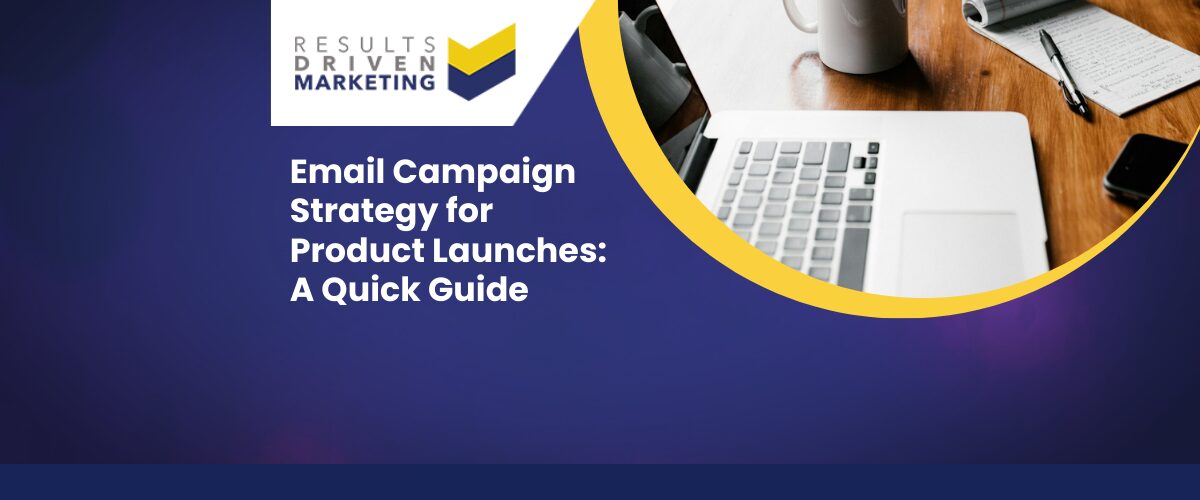
Electronic Mailing Lists
In today’s fast-paced digital world, communication is key. And when it comes to reaching out to a vast audience, few tools are as powerful as electronic mailing lists. But what exactly are they?
Simply put, electronic mailing lists are curated collections of email addresses used by businesses and individuals alike to distribute content to a wide range of subscribers. Whether you’re a business looking to promote a new product or an individual sharing a newsletter, these lists play a pivotal role in ensuring your message reaches its intended audience.
Table of contents:
What Is an Electronic Mailing List?
An electronic mailing list is a list of email addresses that can be used to distribute information to multiple people simultaneously.
They are typically used by businesses, organisations, or individuals to send newsletters, promotional material, or other types of content to a group of subscribers, members, or other interested parties.
The Evolution and Importance of Mailing Lists
Dive back a few decades, and the concept of electronic mailing lists was just budding. Initially, they were simple lists, often manually curated, used primarily by academic institutions and tech enthusiasts.
Fast forward to today, and they’ve transformed into sophisticated tools, integrated with advanced email marketing platforms, and are a staple in the arsenal of marketers worldwide.
But why this surge in popularity? Well, in an age where information overload is the norm, electronic mailing lists offer a direct channel to your audience’s inbox. They allow for targeted communication, ensuring that your content reaches those genuinely interested.
Moreover, with the rise of personalised marketing, these lists have become invaluable. They enable businesses to segment their audience, tailor their messages, and, in turn, achieve better engagement rates.
Different Types of Mailing Lists
Now, not all mailing lists are created equal. Depending on your goals, you might find one type more suitable than another. Let’s delve into the main categories:
General Mailing Lists:
These are broad lists, often used for newsletters or general announcements. They’re perfect for content that has a wide appeal and isn’t necessarily targeted.
Discussion Lists:
Think of these as online forums but via email. Subscribers can join the conversation, ask questions, or share insights. It’s a two-way street.
Announcement Lists:
These are one-way communication channels. Businesses often use them for product launches, updates, or news.
B2B vs. B2C Mailing Lists:
The distinction here is crucial. B2B lists target other businesses, focusing on industry news, product updates, or partnership opportunities. B2C lists, on the other hand, are all about the end consumer. They’re used for promotions, newsletters, or any content aimed at the general public.
Advantages and Disadvantages of Electronic Mailing Lists
What are the advantages of electronic mailing lists?
Ah, electronic mailing lists! They’ve truly revolutionised the way we communicate, especially in the business realm. But what makes them so special? Let’s dive into some of the standout benefits:
- Direct Line of Communication: One of the primary perks of electronic mailing lists is the direct access they provide to your audience’s inbox. It’s like having a VIP pass to their digital world, ensuring your message doesn’t get lost in the noise of the vast internet.
- Cost-Effective: Remember the days of snail mail? The costs, the delays, the environmental impact? With electronic mailing lists, those concerns are a thing of the past. It’s a cost-effective method, allowing for large-scale communication without breaking the bank.
- Segmentation and Personalisation: Here’s where thiopngs get interesting. Electronic mailing lists allow for detailed segmentation. Whether it’s based on demographics, purchase history, or browsing behaviour, you can tailor your content to resonate with specific audience segments.
- Measurable Results: One word – analytics. With the right tools, you can track open rates, click-through rates, and even conversion rates. It’s a marketer’s dream, providing invaluable insights into campaign performance.
What are the disadvantages of electronic mailing lists?
But, as with most things in life, electronic mailing lists aren’t without their challenges. Let’s shed some light on potential pitfalls:
- Over Saturation: With the ease of email comes the risk of overdoing it. Bombarding your audience with too many emails can lead to unsubscribes or, worse, being marked as spam.
- Maintenance: Keeping your list updated and clean is no small feat. Bounced emails, inactive subscribers, and outdated information can hinder performance.
- Privacy Concerns: In today’s digital age, data privacy is paramount. Mishandling subscriber data or not adhering to regulations like GDPR can lead to hefty fines and a tarnished reputation.
- Changing Algorithms: Email service providers frequently update their algorithms, affecting deliverability rates. Staying on top of these changes can be a task in itself
Practical Implementation of Mailing Lists
The practical implementation of mailing lists involves a series of steps and considerations to ensure that the list serves its intended purpose effectively and ethically. Here’s a guide to implementing mailing lists:
Define Your Purpose:
- Newsletter: Regular updates about your business, products, or services.
- Promotions: Special offers, discounts, or sales announcements.
- Discussion: A forum where subscribers can share information and discuss topics.
Choose a Mailing List Service:
- Platforms like Responder offer tools to manage your mailing list, design emails, and analyse performance.
Build Your List:
- Opt-in Forms: Place these on your website, especially on high-traffic pages.
- Promotions: Offer discounts or freebies in exchange for email sign-ups.
- Events: Collect email addresses at trade shows, webinars, or workshops.
- Social Media: Use your channels to promote sign-ups.
- Purchase: You can buy data from reputable suppliers.
Ensure Compliance:
- Unsubscribe Option: Every email should have a clear option for recipients to unsubscribe.
- Privacy: Adhere to data protection regulations like GDPR.
Design Your Emails:
- Mobile Optimisation: Ensure emails look good on mobile devices.
- Clear CTA: Have a clear call-to-action, whether it’s reading a blog post or checking out a sale.
- Personalisation: Use the recipient’s name and offer content tailored to their preferences.
Segment Your List:
- Demographics: Age, location, gender, etc.
- Behaviour: Past purchases, website activity, email engagement.
- Sign-up Source: Where they subscribed from, e.g., website, event, social media.
Test and Optimize:
- A/B Testing: Test different subject lines, email designs, or send times to see what works best.
- Analyse Metrics: Open rates, click-through rates, unsubscribe rates, etc.
- Feedback: Occasionally ask for feedback to improve your emails.
Regular Maintenance:
- Clean Your List: Remove inactive subscribers or those who haven’t engaged in a long time. You can also use data cleaning services offered by data suppliers.
- Update Content: Ensure your content remains relevant and valuable.
Engage with Your Subscribers:
- Regular Updates: Don’t let your subscribers forget about you.
- Valuable Content: Offer content that’s beneficial to your subscribers, not just promotional material.
- Engagement: Encourage replies and feedback.
Review and Adjust:
- Regularly review your strategy, analyse results, and adjust based on feedback and performance metrics.
Are electronic mailing lists a good idea?
The million-dollar question: Are electronic mailing lists worth the hype? Well, like most tools, their effectiveness boils down to how you use them. In the right hands, they can be a game-changer. They offer a platform for consistent communication, fostering relationships, and driving conversions.
However, it’s essential to approach them strategically, understanding your audience’s needs, respecting their privacy, and delivering value with every email. When done right, the results speak for themselves, making electronic mailing lists a worthy addition to any marketing toolkit.
What are the key considerations when electronic mailing lists?
Diving into the world of electronic mailing lists? It’s not just about hitting the ‘send’ button. There are some pivotal considerations to mull over:
- Audience Segmentation: Not all subscribers are created equal. Understanding and segmenting your audience based on their preferences, behaviours, or demographics can make your emails more relevant and engaging.
- Content Relevance: It’s not just about sending emails; it’s about sending the right emails. Ensure your content aligns with the interests and needs of your subscribers.
- Frequency: Too many emails can annoy subscribers, while too few can make them forget about you. Striking the right balance is crucial.
- Mobile Optimisation: With a significant chunk of emails being opened on mobile devices, ensuring your emails look good and function well on smartphones and tablets is non-negotiable.
- Data Privacy: Respecting subscriber data and adhering to regulations like GDPR is not just ethical but also mandatory.
Strategies for Building and Growing Mailing Lists
Ah, the art of building a mailing list. It’s not just about numbers; it’s about engagement. Let’s delve into some tried-and-tested strategies:
- Content Upgrades: Offer additional, valuable content in exchange for an email address. Think e-books, whitepapers, or exclusive videos.
- Exit Intent Pop-Ups: Just when a visitor is about to leave your site, present them with a compelling reason to subscribe. It’s like a digital “Wait, before you go!”
- Gated Content: Have premium content? Allow access only when a visitor provides their email.
- Webinars and Online Events: They’re not just for imparting knowledge. They’re fantastic for collecting email addresses too.
- Referral Programs: Let your existing subscribers do the work. Offer incentives for every new subscriber they bring in.
Leveraging Mailing Lists for Business Growth
Electronic mailing lists aren’t just about sending newsletters. They’re powerful tools for driving business growth:
- Personalised Marketing: Tailor your marketing messages based on subscriber behaviour or purchase history.
- Sales Promotions: Got a sale coming up? Your mailing list is your best bet for spreading the word.
- Customer Engagement: Send updates, gather feedback, or simply check in with your subscribers. It’s all about building and nurturing relationships.
What are the Alternatives to Electronic Mailing Lists?
While electronic mailing lists are fantastic, they’re not the only game in town. Some alternatives include:
- Social Media Marketing: Engage with your audience on platforms like Facebook, Twitter, or Instagram.
- SMS Marketing: Direct and to the point, SMS marketing can be incredibly effective, especially for time-sensitive promotions.
- Chatbots and Messenger Marketing: Engage with visitors in real-time using automated chat solutions.
FAQ
How do companies use purchased data in email marketing?
Companies often leverage externally sourced data to enhance their email campaigns. This can include demographic information, purchase behaviours, or even browsing habits. However, it’s crucial to ensure this data is ethically sourced and used.
How to choose a reliable email marketing service provider?
Choosing the right platform is pivotal. Look for user-friendly interfaces, robust analytics, high deliverability rates, and, of course, stellar customer reviews.
How can you buy audience data for email marketing?
There are several platforms and data brokers that offer audience data. However, always ensure the data is GDPR compliant and ethically sourced.
How to find your target audience for email campaigns?
It’s a mix of market research, analysing existing customer data, and leveraging tools like Google Analytics. Understand their needs, preferences, and behaviours to tailor your campaigns effectively.
Conclusion
In the digital age, electronic mailing lists stand as a testament to the enduring power of direct communication. While the landscape of online marketing continually evolves, the personal touch and targeted reach of mailing lists remain unparalleled.
They bridge the gap between businesses and their audience, fostering relationships that transcend mere transactions. As we navigate the vast expanse of the digital realm, the humble email list serves as a beacon, reminding us that genuine connection, even in an electronic format, is invaluable.
Whether you’re a seasoned marketer or a budding entrepreneur, harnessing the potential of electronic mailing lists can propel your endeavours to new heights. So, as we look to the future, let’s not forget this stalwart tool in our arsenal, continually adapting yet ever-reliable.
Who are we?
Dedicated to lead generation, Results Driven Marketing provides myriad services SMEs can trust to deliver results.
Our marketing lists are guaranteed accurate to industry high standards, and GDPR compliant and our experience team means that if you are looking to buy data, they make them totally bespoke and highly relevant whether you are looking for email lists, direct mailing lists or telemarketing lists.
Our email marketing software is highly rated. Responder provides the automation tools you need to put your marketing on autopilot.
We also supply email marketing solutions with our email marketing platform.
Call us today on 0191 406 6399 to discuss your specific needs.
Results Driven Marketing
info@rdmarketing.co.uk
0191 406 6399









